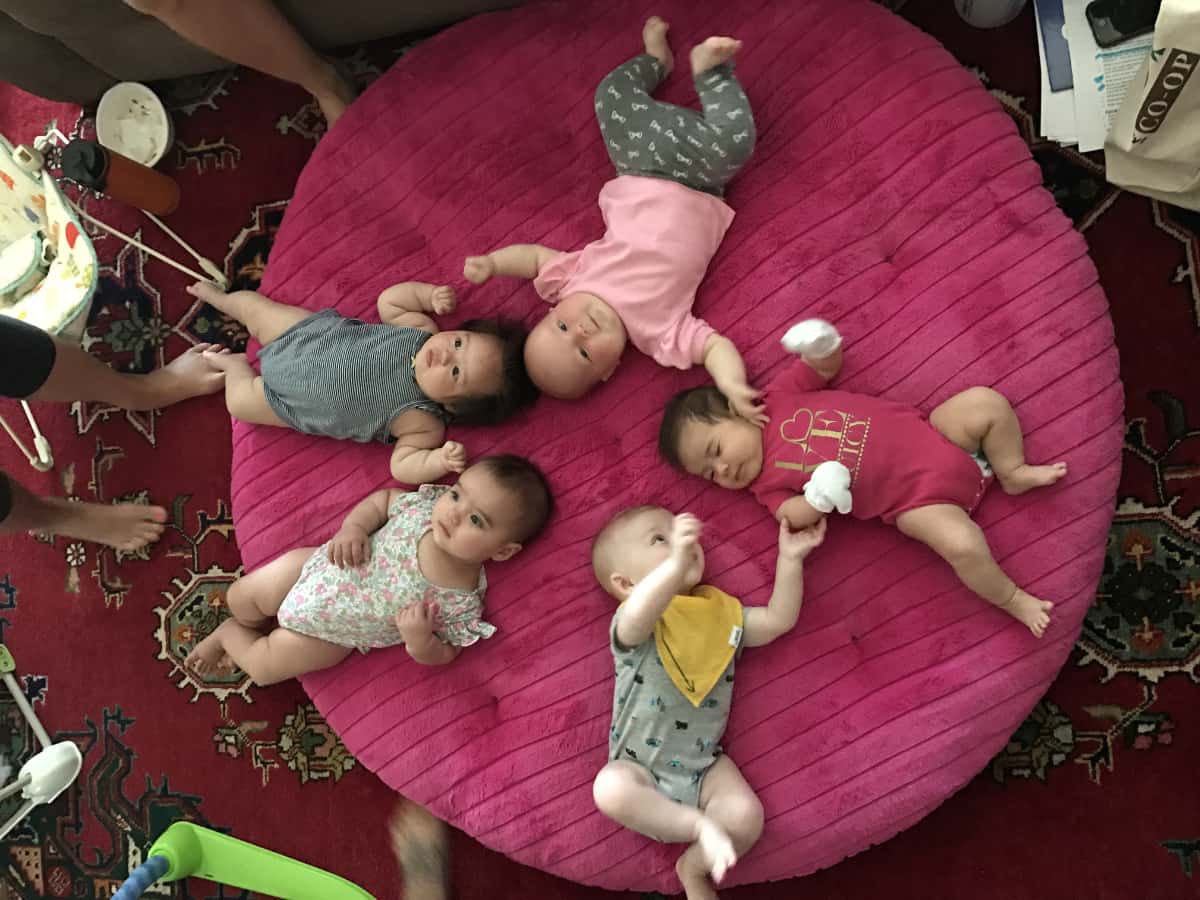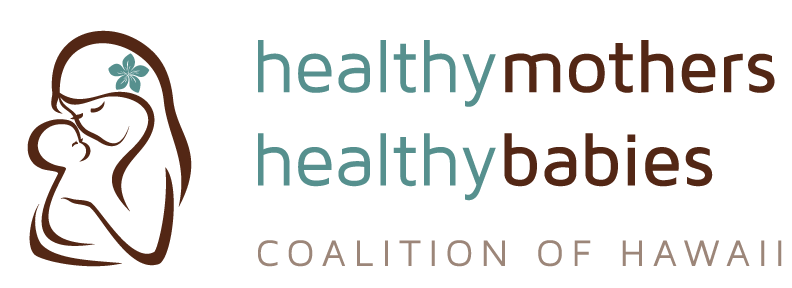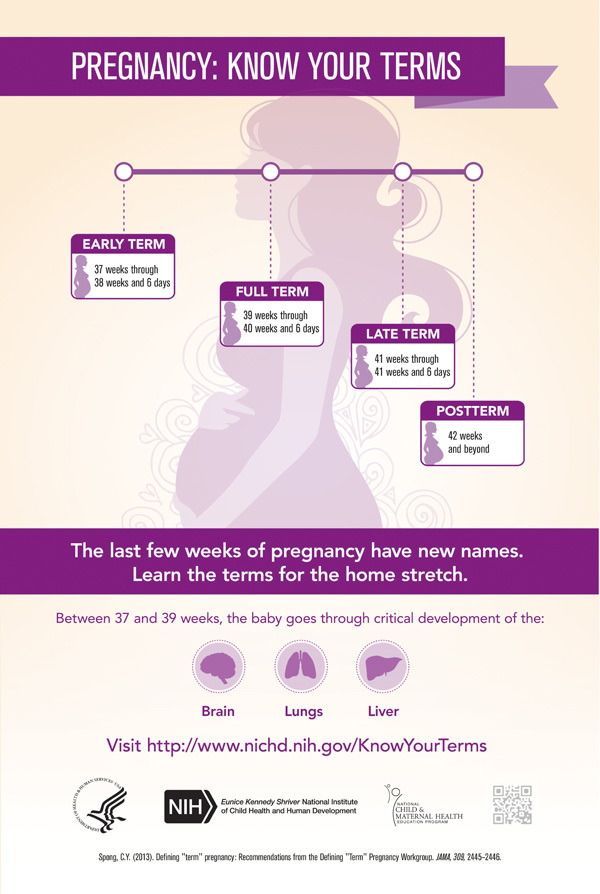Pregnancy and Childbirth
Healthy Mothers Healthy Babies Coalition of Hawaii supports programs to provide education, information, and resources to women on pregnancy signs, prenatal care, and childbirth preparation to promote a healthy pregnancy and delivery for mother and baby.
If you’re wondering if you might be pregnant, or if you already know you’re pregnant, here you will find information and resources to help keep you healthy throughout your pregnancy and to help prepare for your newborn’s healthy, safe arrival.
Here are some commonly asked questions about pregnancy and childbirth:
Q: How do I know if I am pregnant?
A: Knowing the signs of pregnancy can help you tell if you’re pregnant. Here are some signs that you might be pregnant:
- You miss your period.
- You feel sick to your stomach or throw up.
- Your breasts are big and sore. The area around your nipples gets darker.
- You crave certain foods. Or you really dislike certain foods.
- You feel tired all the time.
- A home pregnancy test shows you’re pregnant.
If you have any of these pregnancy signs and think you may be pregnant, go to your health care provider. The sooner you know you’re pregnant, the sooner you can begin prenatal checkups and start taking good care of yourself and your growing baby.
Source: Trying to Get Pregnant (March of Dimes)
Q: I just took a home pregnancy test and it was positive. When should I see a doctor?
A: You should schedule an initial prenatal exam as soon as you know you are pregnant. Be sure to write down a list of questions you want to ask and bring it with you for the visit. Your doctor will also need a list of any medications you are taking and the date of your last menstrual period (to determine your due date), as well as your family health history. It is helpful to write this information down before your appointment and bring it with you.
Source: You’re Pregnant! Prenatal Care Q&A (National Healthy Mothers, Healthy Babies Coalition)
Q: How often will I need to see my doctor now that I am pregnant?
A: If your pregnancy is healthy, you will need to see your doctor once a month until you reach 28 weeks of pregnancy; twice a month between your 28th and 36th week of pregnancy; and once a week after you reach your 36th week of pregnancy until birth. If you have a health problem during pregnancy, your doctor may want to see you more often.
Source: Prenatal Care Visits (March of Dimes)
Q: Is it normal to experience tingling, swelling, sensitivity or tenderness in my breasts?
A: Yes. These are all normal sensations most women experience during pregnancy. In fact, tenderness in the breasts is one of the most common first signs of pregnancy, caused by increased amounts of female hormones in your body.
Q: Is my baby moving enough?
A: You’ll start feeling your baby’s kicks at around the 28th week of pregnancy. By this time, your baby’s movements are usually well established and some healthcare providers recommend keeping track of these movements.
- Track kick counts at about the same time each day when your baby is active.
- Track kick counts shortly after you’ve eaten a meal (when your baby may be most active).
- Sit or lay on your side, place your hands on your belly and monitor baby’s movement.
- Mark every movement down on a piece of paper. Don’t count baby’s hiccups.
Q: What are Braxton Hicks contractions?
A: Braxton Hicks contractions, also known as false labor, prepare your body for labor and delivery. They may increase in the weeks leading up to your due date. With Braxton Hicks contractions:
- You may feel tightening of your uterus muscles at irregular intervals or a squeezing sensation in your lower abdomen and groin.
- Sometimes you can just barely sense these contractions, feeling only a painless tightening. At other times, the contractions can be strong or painful.
- These contractions tend to come and go unpredictably and tend to show up in the afternoon or evening. They are more common when women are tired or have had a lot of physical activity during the day.
Source: Labor and Birth- Contractions (March of Dimes)
Q: How will I know if I’m going into labor?
A: Most pregnancies generally last between 37-42 weeks. As you near labor, you may notice that your baby drops, or moves lower into your pelvis. You’re really in labor when:
- You have strong and regular contractions.
- Your contractions come about 5 to 10 minutes apart.
- Your contractions are so strong you can’t walk or talk during them.
- You feel pain in your belly and lower back.
- The pain doesn’t go away when you move or change positions.
- Your water breaks. Some women feel a big rush of water. Others feel just a trickle.
- You have a bloody (brownish or reddish) mucus discharge.
If you think you’re in labor, call your healthcare provider no matter what the time of day or night. Your healthcare provider can tell you if it’s time to head to the hospital.
Source: Labor and Birth- Signs of Labor (March of Dimes)
Learn More




